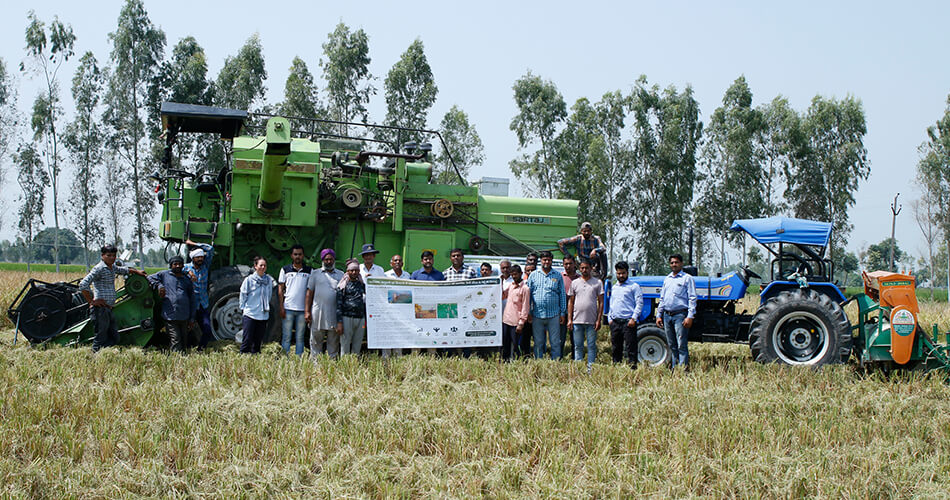
Creating A Win-Win With Climate Smart Agriculture
Every year with the onset of winters, the quality of air starts degrading rapidly. While there are multiple urban causes like vehicular pollution, construction activities and ill sand and dust management, rural areas contribute equal if not more to it too. Crop Residue Burning in the agricultural belts of North India is a common practice to get rid of the residue after rice harvest.
This shortcut agricultural practice is the primary cause of long-term degradation of quality of both environment and harvests. This practice is a serious threat to the entire bio system from soil nutrition to human health and eventually reduces the quality of life. Lower quality of soil results in lower yields which affect the income of farmers in the long run too as they require higher amount of fertilizers, water for irrigation and equipment pressure.
Sonalika CSR – Doing Every Bit For Better Environment
Sonalika CSR along with CIMMYT, BISA, CGIAR Research Programs on Wheat Agri-Food Systems, Climate Change Agriculture & Food Security (CCAFS) and its collaborating partners with Indian Council of Agriculture Research (ICAR), etc. has come down and decided to do every bit for conservation of environment with climate smart agriculture solutions.
Mrs. Surbhi Mittal, Director, Sonalika CSR, sums it up, “Our biggest responsibility as manufacturers of agricultural machinery has always been towards the farmers’ welfare and environment. We have taken this firm step and decided to do every bit to work in tandem with conservation or climate smart agricultural solutions. CIMMYT and BISA are our nodal research institutions who were already delving into the development of pro-sustainable residue management methods and documenting the field notes and with a successful outcome in the past.
From our working, at the grassroots level, we understand that intervention has to be both technological and social.” Sonalika CSR has started to start work with direct impact on the environment in mind and spearheaded the campaign of sustainable crop residue management practices by adopting and supporting 25 villages in Haryana with CIMMYT and BISA.
The Positive Change
CIMMYT, ICAR, state agricultural universities as well as central government are working on various innovative methods to make zero tillage and zero burning initiatives a success. One of the first implemented methods is Direct Seeding which allows rice-wheat farmers to reduce cost, manage soil and water resources, cutting down greenhouse gas emissions and stopping the burning crop-residue completely.
The new crop residue management systems are driven towards profitable zero burn conservation agriculture which are already shaping the future. In-situ management of residue makes the soil nutrient rich enabling it to produce better crop yields. With research in place and the Government’s proactive commitment to address climate change nationally as well as at the global level, making it with the agenda being rooted in the Paris agreement, there are policies which are already initiated and implemented in Punjab, Haryana, Western UP and Delhi-NCR with the mission of zero crop-residue burning.
Sonalika CSR is working on ground consistently to create awareness, educate and help implement the new farming knowledge in these areas. The government has already provided the required help with advanced equipment for crop residue management and Sonalika CSR is educating farmers on optimum usage of them. “This step is helping individuals connect better with the organizations to meet environment sustainable goals in agriculture. The efforts of this education and awareness are fast track, persistent, tangible and relevant for both environment and public health with long-term goal in mind, “Mrs. Surbhi Mittal continues,” So, the engagement definitely has to be a multi-stakeholder and community based approach.”
Sonalika Social Development Society, CIMMYT and BISA along with partnering organizations are confident with this leap of faith as the positive impact is already set in motion. The In-Situ method in 12 lakh hectares of land spread across 4500 villages of Haryana will recycle the paddy stubble in the fields itself helping bring the next harvest to a much higher quality of yield. Farmers and village dwellers are in complete support and are flexible in appointing the new methods of agriculture as they not only help make the environment cleaner, but are also increasing their revenue with minimum wastage of crop residue.
